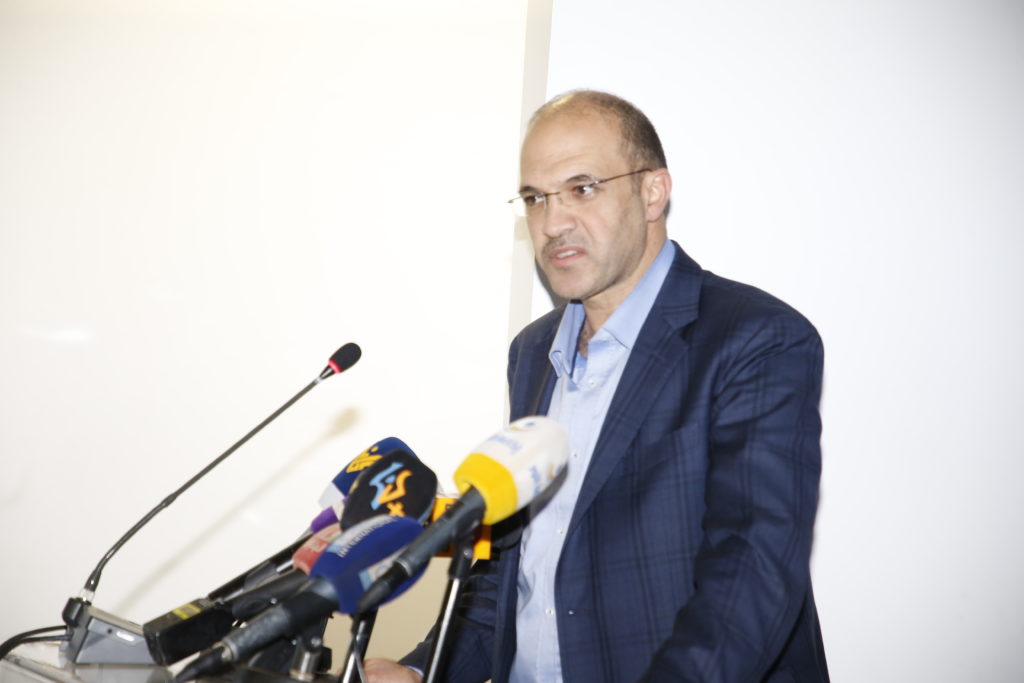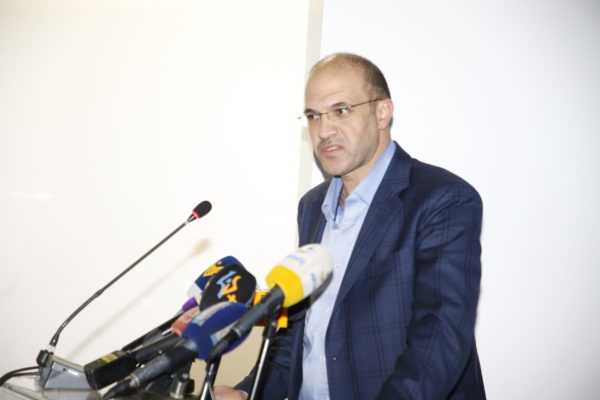Health officials have lambasted Lebanese hospitals for failing to coordinate, contributing to a recent surge of coronavirus cases in the cash-strapped nation.

On Sunday, the head of Lebanon’s main Covid-19 treatment hospital, Firass Abiad, tweeted that several patients who suffered from kidney failure had recently been transferred to his hospital and died.
“Five months after the outbreak of the epidemic, why haven’t some of the most prestigious health facilities prepared for a possible infection of their dialysis patients?” the head of Rafic Hariri hospital tweeted, without naming the other hospitals he was berating.
“Some dialysis centres asked patients to make contact and arrange transfer to our hospital themselves. Isn’t it the moral and professional responsibility of these health centres to provide safe transportation…?” he added.
٧.١ في الاسابيع الماضية، استقبل مستشفى رفيق الحريري الجامعي عدة مرضى مصابين بعدوى #كورونا وهم يعانون من فشل كلوي و بحاجة لغسيل الكلى. غالبيتهم احتاجوا للعناية المركزة، وقد توفي بعضهم لاحقا. معظم المرضى تم طلب نقلهم من مستشفيات معروفة. كل هذا يطرح التساؤلات التالية:
— Firass Abiad (@firassabiad) August 2, 2020
The coronavirus pandemic had been relatively contained in Lebanon until its international airport, which was closed for more than two and half months, was reopened on July 1.
On Saturday, the Health Ministry announced that two people had died in the past 24 hours, bringing the total up to 61. Since the pandemic hit Lebanon in late February, it has registered 4,730 cases, nearly a quarter(1,012) originating from incoming travellers.
To curb the spread of Covid-19, officials announced a 5-day lockdown for Eid Al Adha, from July 30 until August 3, and then again from August 6 to August 10.
The treatment of Covid 19 patients has been centralised at Rafic Hariri hospital, the country’s largest public healthcare facility, in Beirut. Eighteen people are in critical condition, said the hospital in a press release on Saturday.
Even without the coronavirus, private hospitals, which treated 85 per cent of the country’s patients pre-pandemic, have been struggling to survive Lebanon’s worst-ever economic crisis.
Sleiman Haroun, head of the syndicate of private hospitals, previously told The National that about 60 per cent of private hospitals have reduced their operations, with some only admitting emergency cases.
Running costs of hospitals have exploded. They must buy imported medical equipment and drugs with cash dollars bought at inflated prices on the black market. The local currency has lost about 80 per cent of its value.
On Friday, Mr Abiad complained on Twitter that private hospitals were not doing their part in fighting the coronavirus.
“Currently, there are around 260 Covid-ready staffed ICU beds (80 per cent are in private hospitals). The vast majority of critical Covid pts are admitted to public hospitals. Our true ICU bed capacity depends on a question, why aren’t more pts [sic] being admitted to the private hospitals?”
Lebanon’s economic crisis has pushed half the population into poverty, and many are unable to renew their health insurance. There have been increasing reports of patients dying because hospitals refuse to treat them for financial reasons.
On Saturday, the state-run National News Agency reported that an 83-year old woman, Sarah Ramadan, died after suffering a stroke because two hospitals in the eastern city of Baalbek refused to take her in after they were informed that she had no insurance.
There are different state schemes to cover Lebanon’s poor, but private hospitals complain of delays in reimbursement from the government, which owes them over 2500 billion Lebanese pounds, according to Mr Haroun.This translates to $1.6 billion at the little-used official exchange rate, or 333 million at the black-market rate.
In March, Lebanon defaulted on its debt for the first time, and officials are negotiating with the IMF for a bail-out.
On Thursday, Health Minister Hamad Hassan criticised hospitals that refuse patients but did not give any solution to their financial difficulties.
Mr Hassan announced that a call centre would be set up to co-ordinate between the Health Ministry and hospitals and clinics to “determine the whereabouts of available beds and avoid lack of transparency.”
Mr Hassan stressed the need for “accountability” from hospitals “who abandon their duties at this stage. We are partners in the good and bad,” he said.
THE NATIONAL AE


Leave a Reply
You must be logged in to post a comment.